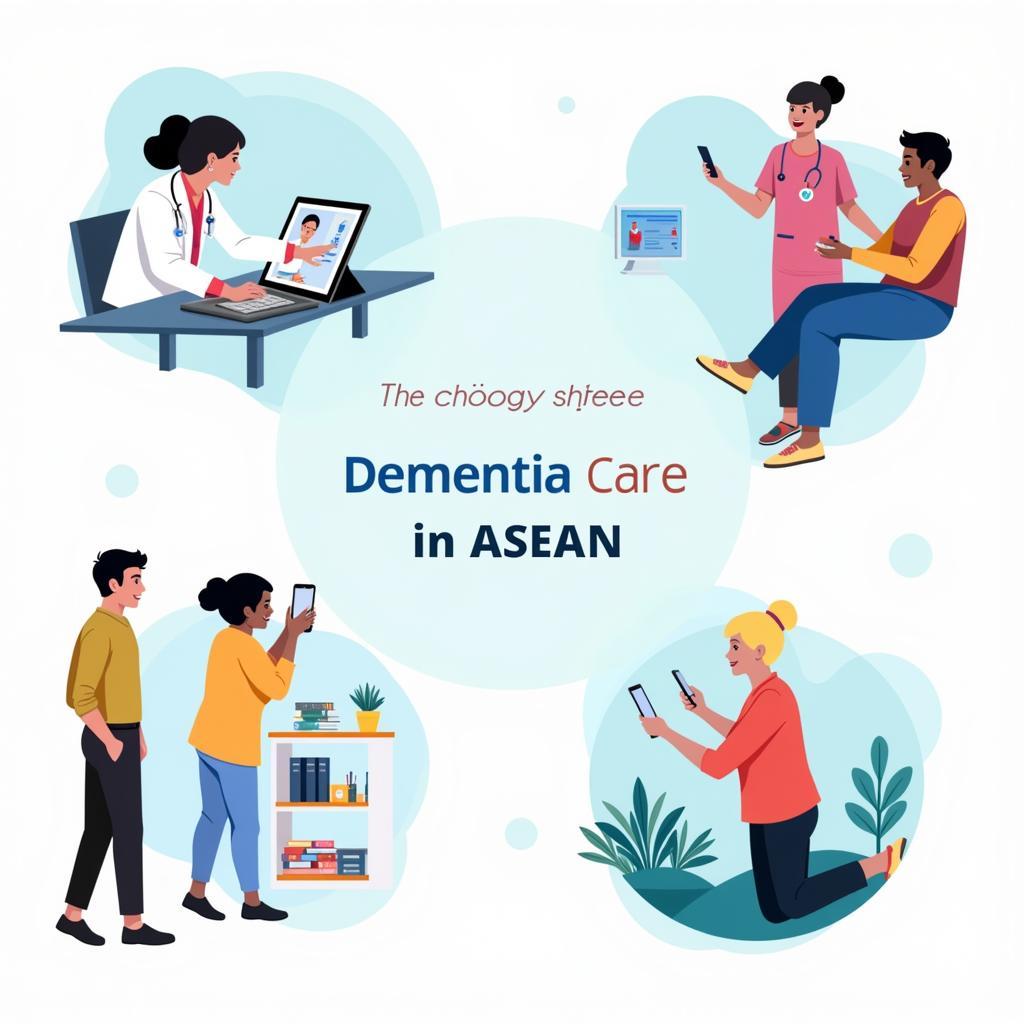Dementia poses a significant and growing health concern across the ASEAN region. With an aging population and increasing life expectancy, understanding the impact of dementia in Southeast Asia is crucial for developing effective strategies for prevention, care, and support.
The increasing prevalence of dementia in ASEAN countries presents a multifaceted challenge, impacting not only individuals and families but also healthcare systems and economies. Understanding the specific cultural context of dementia within Southeast Asia is vital for tailoring effective interventions. Factors like family structure, traditional beliefs about aging and illness, and access to healthcare vary significantly across the region, influencing how dementia is perceived, diagnosed, and managed. asea alzheimer’s
The Burden of Dementia in Southeast Asia
The World Health Organization estimates that over 70% of people with dementia live in low- and middle-income countries, many of which are in the ASEAN region. This demographic shift presents unique challenges. Limited resources, inadequate healthcare infrastructure, and a lack of awareness about dementia contribute to the difficulties faced by individuals, families, and communities in managing the disease. Many families in ASEAN shoulder the primary responsibility for dementia care, often with little external support.
Cultural Perspectives on Dementia in ASEAN
Cultural beliefs and practices play a significant role in shaping perceptions and experiences of dementia in ASEAN. In some cultures, memory loss may be attributed to normal aging or even supernatural forces, leading to delays in seeking medical attention. Furthermore, the stigma associated with dementia can prevent open discussion and create barriers to accessing support services.
Addressing the Dementia Challenge: Regional Strategies
Recognizing the growing burden of dementia, ASEAN member states are increasingly prioritizing dementia care in their national health agendas. Several initiatives have been launched to raise awareness, improve diagnostic capabilities, and develop community-based support services. Regional collaboration is also essential for sharing best practices and coordinating efforts to address the dementia challenge effectively.
Building Capacity for Dementia Care
Training healthcare professionals, developing culturally sensitive diagnostic tools, and establishing specialized dementia care centers are key steps in building capacity within the region. Empowering families with the knowledge and skills to provide effective care is also crucial. Support groups, respite care services, and educational programs can help alleviate the burden on caregivers and improve the quality of life for people living with dementia.
13th biennial convention of the asean neurological association asna 2019
The Role of Technology in Dementia Care
Technology offers promising solutions for improving dementia care in ASEAN. Telehealth platforms can facilitate remote consultations and monitoring, particularly in areas with limited access to specialist care. Mobile applications can provide caregivers with valuable information, resources, and support. Furthermore, assistive technologies can enhance the safety and independence of people living with dementia.
 Technology Solutions for Dementia Care in ASEAN
Technology Solutions for Dementia Care in ASEAN
Conclusion: A Collaborative Approach to Dementia in ASEAN
Addressing the dementia challenge in ASEAN requires a collaborative and multi-sectoral approach. Governments, healthcare providers, researchers, community organizations, and families must work together to create a supportive environment for people living with dementia and their caregivers. By promoting awareness, investing in research, and developing culturally appropriate interventions, ASEAN can effectively respond to the growing burden of dementia and improve the lives of those affected. Asean and dementia are intrinsically linked, and addressing this challenge head-on will be crucial for the region’s future.
FAQ
- What are the early signs of dementia?
- How is dementia diagnosed in ASEAN?
- What support services are available for families caring for someone with dementia?
- How can I reduce my risk of developing dementia?
- What are the cultural factors that influence dementia care in ASEAN?
- Are there any government programs for dementia support in ASEAN countries?
- How can technology be used to improve dementia care in the region?
Need assistance? Contact us 24/7 at Phone: 0369020373, Email: [email protected], or visit us at Ngoc Lien Village, Hiep Hoa, Bac Giang, Vietnam.
